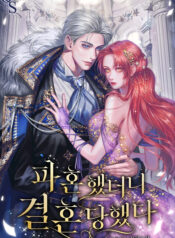- Home
- My Unrequited Love is Not You!
- Chapter 2.1 - The Beautiful Man, Everyone’s Lover and the Scoundrel
Chapter 2 – The Beautiful Man, Everyone’s Lover and the Scoundrel
Chapter 2.1
At the time when the Sun God’s chariot retreated to the other side of the sky, and the world’s ruler shifted from the sun to the moon, the curtain rose brilliantly at the Flavium Theater.
Though the history of Flavium Theater might be shorter than that of the Royal Theater, no one could deny that it was the most splendid theater in the city.
The same was true for the Wharton family, the owners of Flavium Theater. Exercising power through immense wealth rather than reputation was a thorn in the side of nobles who valued nobility as if it were their lifeblood.
Even so, it was already an era where capital had surpassed nobility.
Thus, Flavium Theater, which had overtaken the Royal Theater to become the city’s finest, stood as proof of the changing times.
At night, people gathered in front of the theater, laughing with excitement like children visiting an amusement park.
Whether it was lovers blossoming in love, young men wandering in search of love, or noble ladies dreaming of a romantic gaze exchanged with an actor on stage, they all envisioned the most enchanting night imaginable.
If someone lingered in front of the theater holding a bouquet, it was most likely meant for an actor.
Yet, there was only one person who received bouquets despite not being an actor.
A black carriage adorned with golden decorations, replacing the Sun God’s chariot, approached the theater.
All eyes turned toward the carriage, recognizing its owner. Those holding bouquets moved toward the spot where the carriage would stop.
In the midst of the people’s dazzling dreams, the carriage came to a halt.
As the door opened, a golden-haired man stepped out, his radiance seemingly undimmed even after the sun had set.
Edgar Wharton.
Everyone mentally recalled that famous name.
The reason for its fame was partly because he bore the surname “Wharton,” but even more so because of the rumors surrounding him.
Writers lamented that though Edgar Wharton owned the stage, he would never grace it.
Artists longed to use the beautiful man as their model.
Reporters anticipated scandals as dazzling as his appearance.
“Mr. Wharton!”
“A bouquet for you, Mr. Wharton!”
“Mr. Wharton!”
His name erupted like an echo.
At the moment when a beautiful smile spread across Edgar Wharton’s face, surrounded by blooming bouquets, the rumors found their justification.
The man standing among the carefully cultivated flowers fit the scene perfectly.
In a way, he was similar to the flowers, as if being loved and admired was his natural role.
Instead of accepting the bouquets, Edgar Wharton strode gracefully toward the theater on his long legs.
His attendant busily gathered the bouquets in his stead.
Edgar Wharton’s attendant, Maurice, looked at the flowers in his arms with pity.
The lives of these cut flowers were sacrifices for affection.
Even if they withered, they endured their fate for the sake of one affectionate glance from the person holding them.
But these flowers would wither without evoking any emotion from the indifferent man, which was truly unfortunate.
However, pity was Maurice’s alone to bear.
The people cared only for the beautiful man, not the fading flowers.
Like spectators admiring an actor on stage, their eyes sparkled.
***
Edgar Wharton’s time at Flavium Theater was not merely because he was its future owner.
He loved plays that shone brilliantly and ended spectacularly.
During performances, he could forget about life’s troublesome matters—marriage, business, and the like.
But the most exceptional aspect of plays was something else entirely.
A play did not demand a lifetime commitment.
How had it become the norm in this world to live with a stranger, someone unrelated to oneself, for the rest of one’s life?
Perhaps it stemmed from a futile belief in love, the idea that love could solve all problems.
The reason Edgar, who had been happily anticipating a play’s premiere, fell into such tedious musings about love was a single remark from a theater staff member.
“Lady Wharton is waiting for you.”
At those words, Edgar’s leisurely steps came to an abrupt halt.
The lady among ladies—Lady Wharton.
The elderly aunt who owned Flavium Theater was the most formidable lady Edgar knew among all the ladies.
“I’ll escort you to your seat.”
The staff member offered a polite suggestion to guide him to a seat he could find blindfolded.
Edgar forced a smile, realizing his chance to escape had been taken away.
The staff member led him right to the box seat and bowed respectfully before stepping back.
Edgar hesitated at the entrance, unable to step inside.
Maurice, noticing his hesitation, asked with concern,
“Are you all right?”
“Of course….”
Edgar looked at Maurice with a bright smile.
“No, not really.”
Maurice’s pity, which had been directed at the flowers, now shifted to his employer.
Maurice could easily guess what Lady Wharton would say upon seeing Edgar.
‘How’s the engagement preparation coming along?’
The image of the Duke’s daughter storming out of the drawing room flashed in Maurice’s mind.
It was a disaster that had occurred just before the engagement.
A disaster sparked by a single letter.
“Have you spoken with the Duke’s daughter?”
“She seems to think I’m some depraved man exchanging filthy letters.”
Edgar Wharton replied in a detached tone.
Maurice sighed with a mix of pity and regret.
He knew the truth of the incident.
While scandals were a regular occurrence for Mr. Wharton, this one was an unjust misfortune.
Maurice had never imagined such a letter would be among the countless ones arriving daily.
He had simply done what he always did—gathered the letters and delivered them.
That day, the Duke’s daughter hadn’t shown up even after the appointed time had passed.
Bored of waiting, Mr. Wharton had casually picked up a letter.
To my dearest Mr. Wharton,
Unable to sleep as thoughts of you fill my nights, I write this letter with my heart. Your sun-like eyes brighten my nights, and your rose-like lips stir my heart.
Just then, the Duke’s daughter arrived.
Mr. Wharton, unable to finish reading the letter, placed it on the table.
The moment the Duke’s daughter discovered the letter, coincidence turned into misfortune.
The anonymous lady’s letter was a love confession—at least in its beginning.
The part Mr. Wharton hadn’t read was filled with scandalous and provocative words.
The Duke’s daughter didn’t think the letter was a one-sided result of unrequited love.
She believed there must have been reciprocated exchanges of affection.
As a result, the man who was supposed to become her fiancé was branded a scoundrel exchanging indecent letters just before the engagement.
“Still, can’t you talk to her and clear up the misunderstanding?”
“And how should I have done that?”
“……”
Unlike the troubled Maurice, Edgar Wharton remained calm.
In fact, the person involved in the incident seemed to comfort the onlooker as he patted Maurice’s shoulder.
“Well, things will work out somehow. Don’t worry too much.”
Edgar smiled and plucked one of the bouquets from Maurice’s arms.
Striding confidently into the “enemy’s” territory, he handed the bouquet to Lady Wharton.
He flashed the charming smile that had never failed to win hearts.
“It’s an honor to sit with the most beautiful lady in Flavium Theater.”
But Lady Wharton, as always, maintained her icy expression.
“There’s no need to tell me how you seduce women.”
Edgar kept his smile like an actor who never falters on stage.
He leaned toward Lady Wharton with a warm expression.
“But you came all the way here because you wanted to see me.”
“I don’t know if I wanted to see you, but there are things I need to ask.”
Lady Wharton was the only person who remained unmoved by Edgar’s handsome face.
Maurice, watching the confrontation between a spear and a shield, was so tense that he nearly crushed the leaves of the bouquet he was holding tightly.
Lady Wharton’s gaze turned to Edgar. Her expressionless eyes, combined with her deep-set features, gave an even sterner impression.
“Is the engagement preparation going well?”
The unavoidable question was thrown at him.
Edgar, who had been wearing a radiant smile, responded without deviating from the script.
“Of course. Absolutely.”
Lady Wharton scrutinized Edgar with eyes that seemed capable of instantly discerning any lie. But soon, she withdrew her gaze.
Only then did Edgar relax his twitching lips and lean back against the chair.
No sooner had he leaned back than Lady Wharton’s words followed.
“I have no intention of handing over the theater to a loafer who lives like a libertine without getting married.”
This was why Lady Wharton was the most frightening lady Edgar knew.
People assumed that a young man born into the Wharton name was a pampered heir, a flower in an eternal greenhouse.
But the reality was different from their expectations.
Edgar’s father was the only failure among his siblings. He failed in business and, within the Wharton family, also failed in marriage—a continuation of business in its own right.
Marrying the one you love despite poverty might seem romantic in novels, but in reality, it led to utter misfortune.
When Lady Wharton found her nephew’s son, Edgar was a child who couldn’t even read.
In a dusty attic filled with coal soot, there was no one who came to visit.
No adult cared for the boy who went to sleep alongside his deceased mother.
Lady Wharton saved Edgar from inheriting misfortune.
The orphaned boy was transplanted from the mud of the slums to the grand estate of the Wharton family.
Having chosen a life of solitude, Lady Wharton decided it wouldn’t be a bad idea to pass on the theater she had built over a lifetime to the child who followed her around.
“For women, marriage is undoubtedly a form of bondage. But for men, it’s an opportunity—a chance to stop wandering and learn responsibility. If you’re entertaining foolish ideas, cast them aside immediately and find a way to prove your sense of responsibility.”
Lady Wharton turned to look at the young man seated beside her.
Edgar stared at the stage, draped in red curtains, with a contemplative expression.
Time had flown by, and the boy had grown into a man.
Now, he was a fine young man, with no trace of the poverty and misfortune left behind by his father.
Lady Wharton observed the theater she cherished and the beautiful young man as if they were part of a single scene.
A dazzling theater and its handsome owner—a vision of a nighttime fantasy anyone might dream of at least once.
But it still wasn’t enough.
Nobility—something only aristocrats possessed—was what Lady Wharton desired.
Thus, the marriage to the Duke’s daughter was a once-in-a-lifetime opportunity that neither the theater nor the young man, blooming like a flower, could afford to miss.
Lady Wharton withdrew her gaze from the still-incomplete scene. Silence lingered.
Noticing the concern in Lady Wharton’s prolonged silence, Edgar deliberately brightened his smile.
“Don’t worry. Everything is going just fine.”







